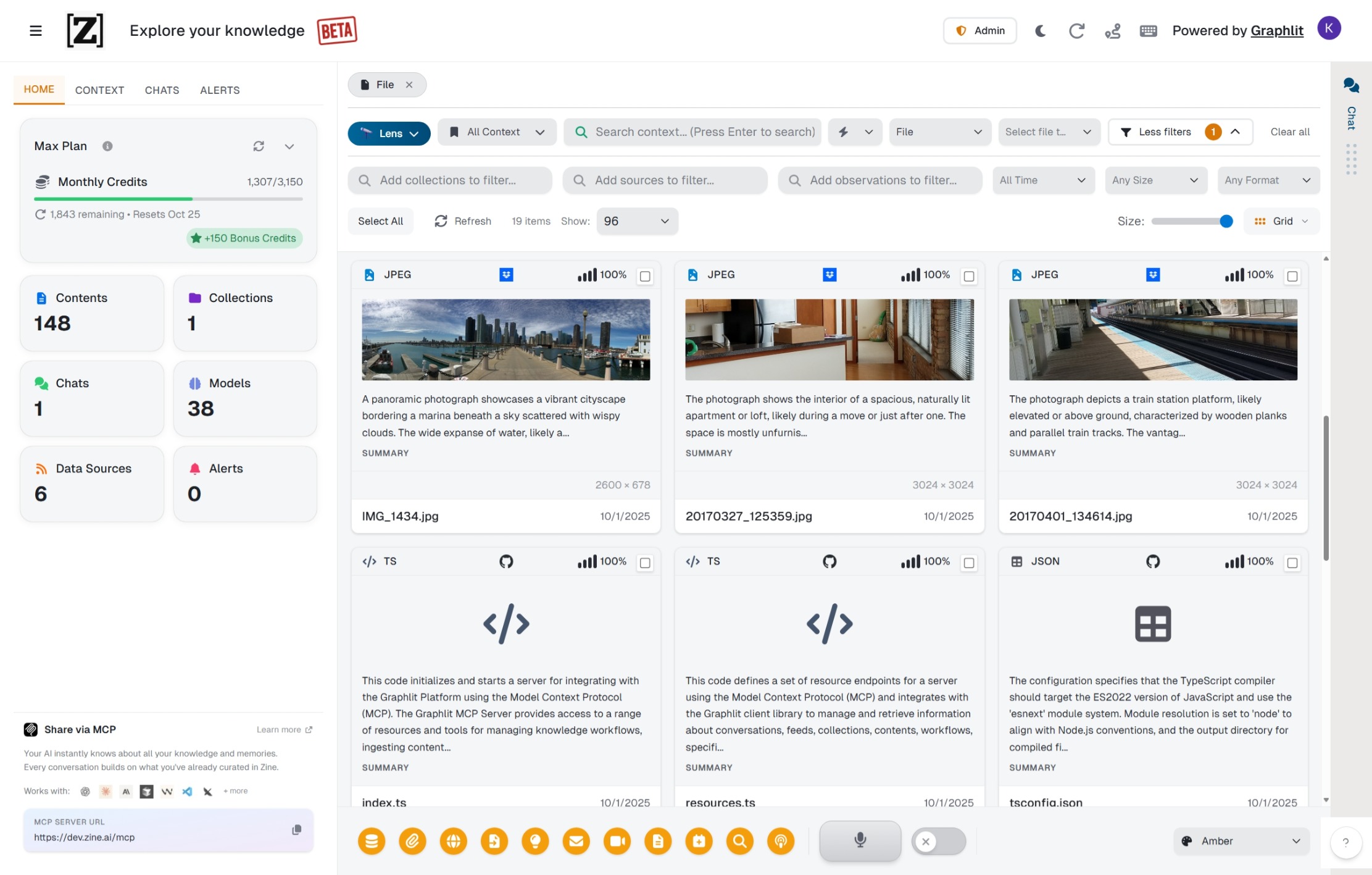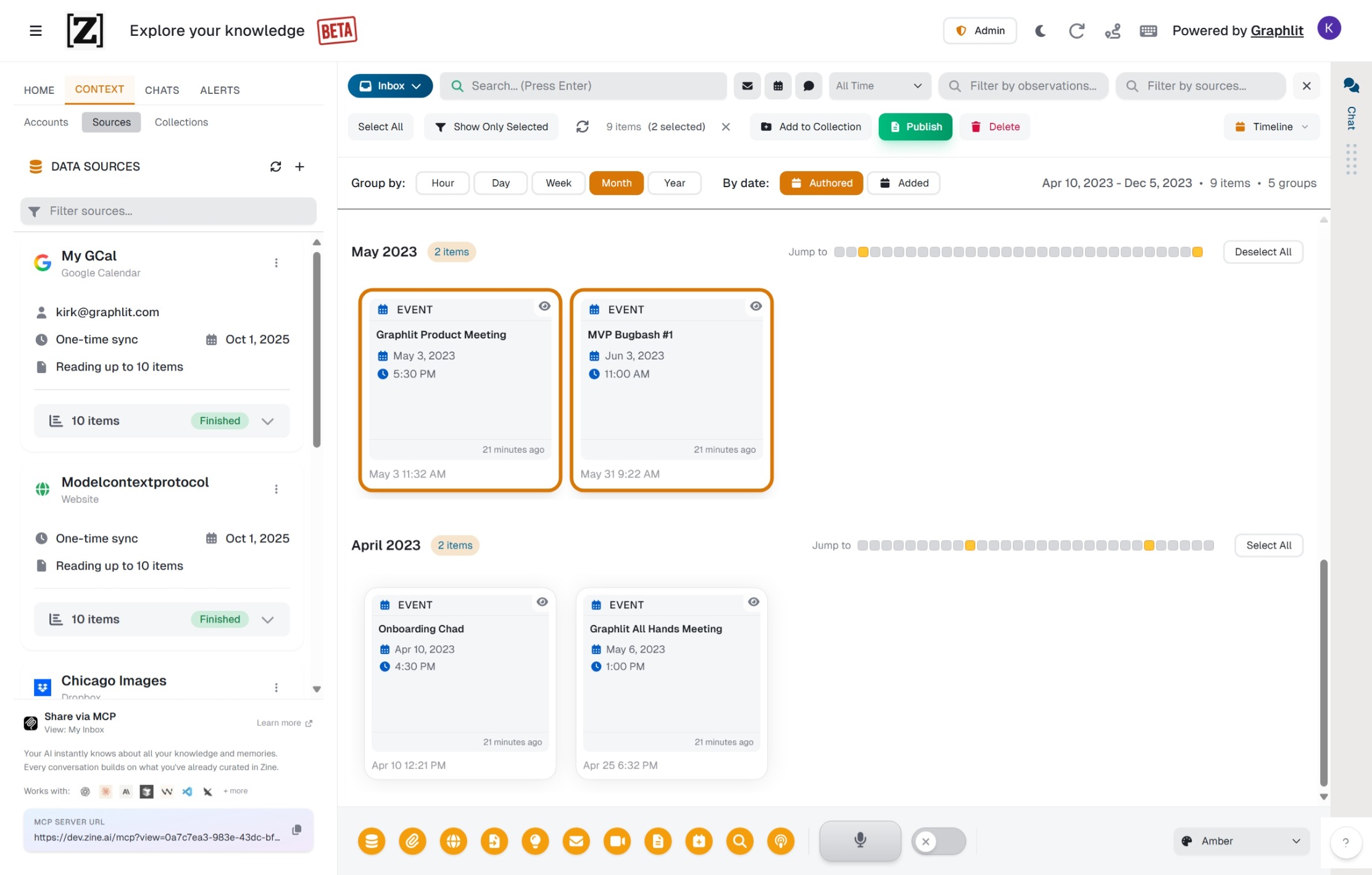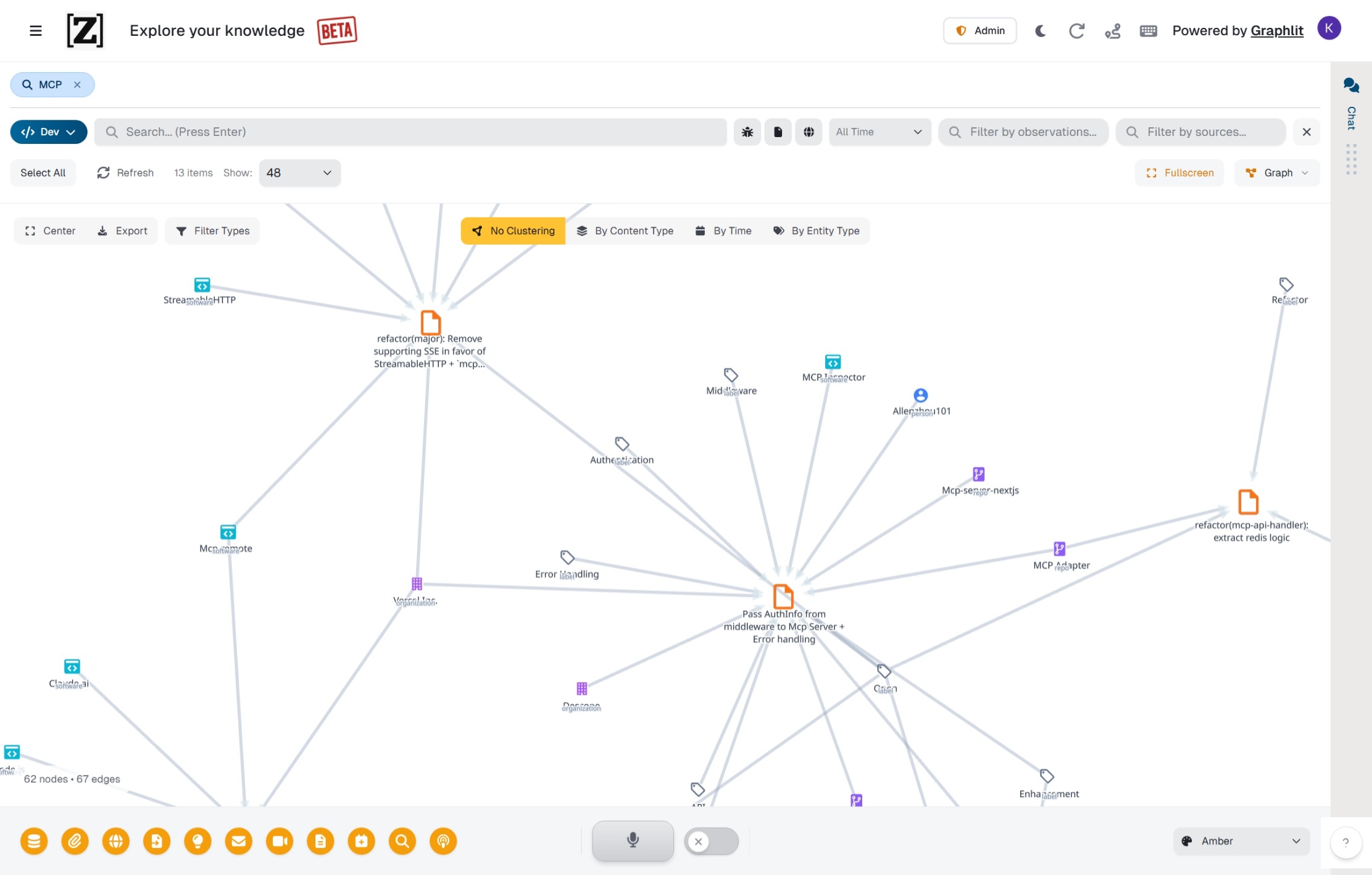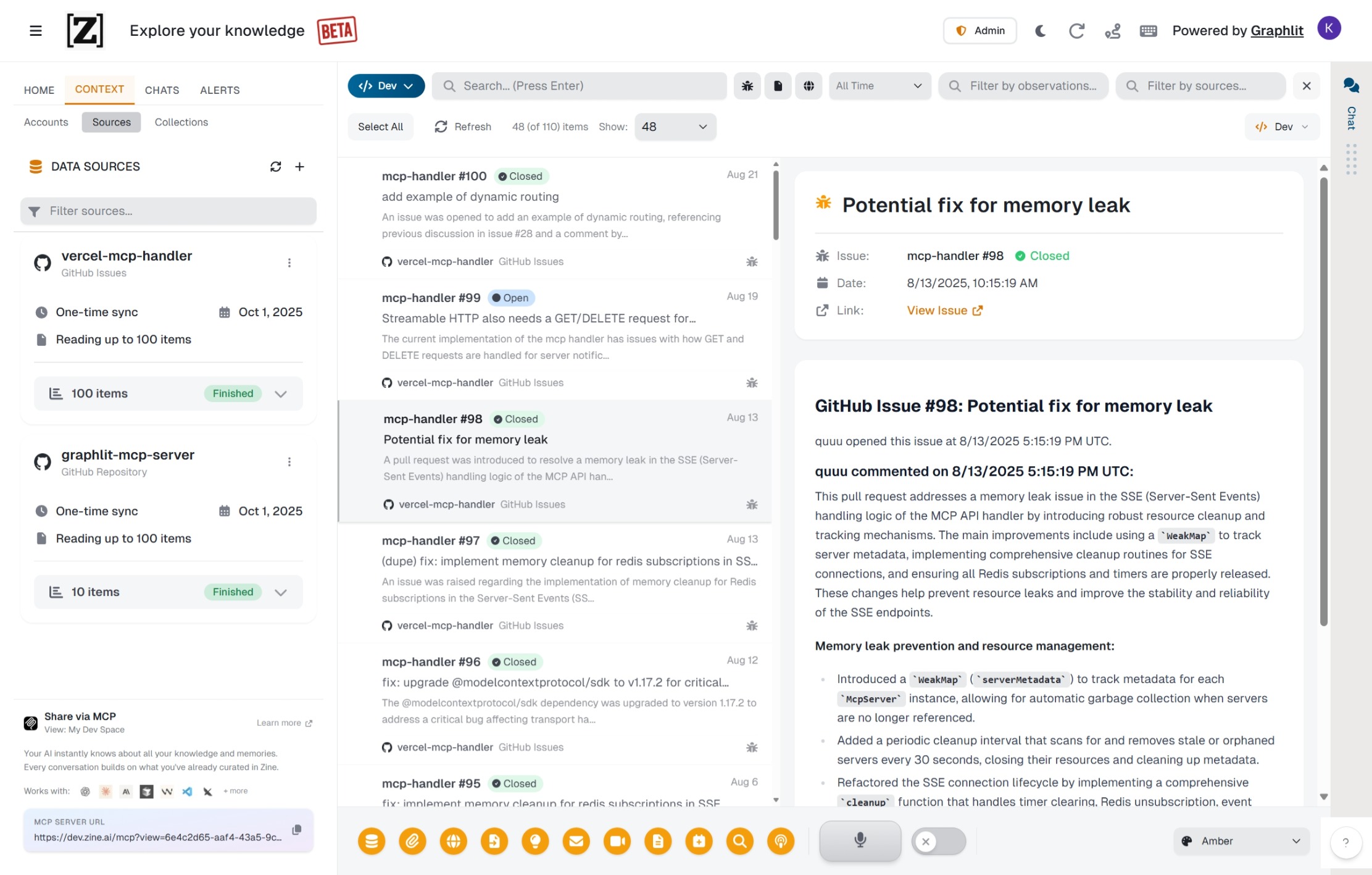You search for "Acme Corp pricing discussion" across your tools.
Slack: 200 messages, no context
Gmail: 150 emails, scattered across threads
Google Drive: 47 documents with those keywords
Notion: 12 pages, some outdated
Now you spend 30 minutes piecing together what actually happened.
What if there was one search box for everything your team has ever said, written, or shared?
The Problem: Your Team's Memory Is Scattered
Every tool you use—Slack, Gmail, Notion, Google Drive—treats your team's knowledge the same way: as isolated documents to search through.
When you search "Acme Corp", these tools:
- Find every message/email/doc with those keywords
- Show you hundreds of results
- Force you to manually figure out what's relevant
- Make you guess how things connect
- Can't tell you if information is outdated
The issue: Your team's knowledge isn't documents. It's relationships, context, and understanding.
When you ask "What did Acme Corp say about pricing?", you're not asking for every document that mentions those words. You're asking:
- Who at Acme are we talking to?
- What exactly did they say?
- When did this conversation happen?
- Where across all our tools does this come up?
- How did the conversation evolve?
Traditional search can't answer these questions because it doesn't understand entities, relationships, or time. It just finds matching text.
How Zine Is Different
Zine doesn't treat your knowledge as a pile of documents. Think of it as your team's memory—connected, contextualized, and always up to date.
Connect your tools once—Slack, GitHub, Gmail, Notion, Jira, Zoom. We keep everything synced automatically. Search across all of it like it's one giant brain.
Like iPhoto for your team's knowledge.
Here's how it works:
1. Everything in One Place, Automatically
Connect your tools once—Slack, Gmail, Google Calendar, GitHub, Notion, Jira, Zoom—and we keep everything synced automatically. We also automatically identify the important entities:
People:
- Sarah Chen (Acme Corp's CFO)
- Alex Martinez (your account manager)
- John from your product team
Organizations:
- Acme Corp
- Your company
- Partner companies
Projects:
- Q1 Migration
- The Acme Deal
- Product Launch 2025
Events:
- The pricing negotiation meeting
- Q4 review
- Product demo
Key Concepts:
- Pricing models
- Technical requirements
- Security compliance
Now when you search "Acme Corp", you don't get 200 random results. You get:
- All people from Acme you've interacted with
- All projects related to them
- All meetings you've had
- All decisions that were made
Everything is connected. Auto-synced • Deduped • Searchable
2. Search Across Everything at Once
Stop checking five different tools. One search hits Slack, Gmail, Google Drive, GitHub, Jira, and Zoom simultaneously.
Real example:
You search "Acme Corp pricing"
Zine shows you:
- The email thread where Sarah (Acme CFO) proposed new pricing
- The Slack discussion where your team debated the proposal
- The meeting transcript where you negotiated terms
- The Linear ticket where Alex documented the final decision
- The Google Doc with the signed agreement
All linked. All in order. All with context.
 Browse and filter content from all your sources in one unified view
Browse and filter content from all your sources in one unified view
Traditional search would show these as isolated fragments across five different tools. You'd spend 20 minutes finding and connecting them manually.
Zine shows them as one coherent story in 10 seconds.
3. Always Up to Date
Connect once, we sync everything automatically. New messages, files, and conversations are searchable immediately.
Time matters. "What Acme said about pricing" is different in March vs September. Zine understands this:
- What happened first: The email kicked off the discussion
- What evolved: Slack debate led to a meeting
- What's current: The most recent agreement supersedes old proposals
- What's outdated: The March pricing model no longer applies
When you ask "What's our current pricing with Acme?", Zine knows to show you the most recent information, not the first mention from six months ago.
 See conversations in chronological order with full temporal context
See conversations in chronological order with full temporal context
4. Real-Time Context
Search yesterday's architecture discussion or last week's PR review. No manual re-indexing when things change.
Every entity in Zine has relationships:
Sarah Chen (person)
- Works at Acme Corp (organization)
- Attended Q4 Pricing Meeting (event)
- Mentioned in 47 messages across Slack, email, meetings
- Connected to 5 projects you're working on together
Click on Sarah's name anywhere in Zine, and you see her complete relationship web: every conversation, every project, every decision she was part of.
 See how people, projects, and conversations connect across all your sources
See how people, projects, and conversations connect across all your sources
Traditional search: Sarah is just text that appears in messages
Zine: Sarah is a person with complete context—every conversation, every project, every decision
5. Turn Conversations into Documents
Most tools make you choose: search OR create. Zine does both.
Your scattered knowledge across Slack threads, meeting transcripts, and email becomes clean deliverables:
Ask AI to generate:
- "Create a Q3 customer report from all our support conversations"
- "Summarize this week's engineering standup notes into a status update"
- "Turn the Acme Corp pricing discussion into a decision doc"
Get a polished document as markdown, or generate an image, audio brief, or video. Every piece you create gets added back to your searchable knowledge.
This is where Zine goes beyond search. Your team's knowledge becomes actionable—not just findable, but usable.
The best part? Everything you publish becomes part of your team's memory. Your context grows over time.
Real-World Examples
For Sales & Customer Success
Scenario: You have a call with Acme Corp in 10 minutes.
Without Zine: Frantically search Gmail for past emails, check Slack for mentions, ask teammates "what's going on with Acme?"
With Zine: Search "Acme Corp" → see all people you've talked to, recent conversations, pricing discussions, open issues, and last meeting transcript. Never prep for a call again.
For Developers
Scenario: Your coding agent gives generic answers because it doesn't know your codebase.
Without Zine: Manually feed context into your IDE. Copy-paste Slack threads. Search for PRs. Paste architecture docs.
With Zine: Connect Zine's MCP server to Cursor/Windsurf/VS Code. Your agent has access to yesterday's architecture discussion, last week's PR review, and the Slack thread explaining "why we chose approach X." Real-time context, no manual indexing.
For Product & Operations
Scenario: Someone asks "Why did we build feature X this way?"
Without Zine: Hope it's documented somewhere. Ask around. Maybe find a stale Notion doc.
With Zine: Search "feature X" → see the Linear ticket, Notion spec, Slack debate, and meeting where the decision was made. Complete decision history, instantly.
For Leadership
Scenario: You need to know what happened this week across 10 channels and 50 meetings.
Without Zine: Read 200 Slack messages. Skim meeting notes. Ask for summaries.
With Zine: Get a daily audio brief from all your tools. Know what's happening without the noise.
Example 1: Customer Context (30 seconds vs 30 minutes)
Your manager asks: "What's the status with Acme Corp?"
Traditional approach:
- Search Slack: 300 messages, scroll through manually
- Search Gmail: 200 emails, figure out which are relevant
- Check Notion: Find project docs (if they exist)
- Ask Alex: "What's going on with Acme?"
- Time spent: 30 minutes, incomplete answer
Zine approach:
- Search "Acme Corp"
- See all people from Acme you've talked to
- See timeline of interactions (email → Slack → meetings)
- See related projects and current status
- See latest update from most recent communication
- Time spent: 30 seconds, complete answer
Example 2: "Why Did We Make That Decision?"
Three months later, someone asks: "Why did we choose PostgreSQL over MySQL?"
Traditional approach:
- Hope someone wrote it down
- Search GitHub issues (maybe you'll find it)
- Ask the team (if they remember)
- Likely answer: "I don't remember, it was before I joined"
Zine approach:
- Search "PostgreSQL vs MySQL"
- See the Slack discussion from 3 months ago
- See the GitHub issue where it was debated
- See the meeting transcript with the final decision
- See who made the call (Alex) and the exact reasoning (better JSON support, team familiarity)
Institutional memory preserved. No information lost.
Example 3: Onboarding New Team Members
New engineer joins: "How do we handle security reviews?"
Traditional approach:
- Someone points them to a doc (hopefully current)
- Doc doesn't show who to ask or recent examples
- New person still confused
Zine approach:
- Search "security review process"
- See the process documentation
- See actual examples of recent security reviews
- See the Slack channel where reviews are discussed
- See who runs them (based on who actually does them, not who's assigned)
- See common questions and resolutions
Complete context, not just a doc.
The Technical Difference (Simple Explanation)
Vector Search (What Everyone Else Does):
Your query → Turn into numbers → Find similar numbers → Show results
Problem: No understanding of people, organizations, time, or relationships. Just "similar text."
Zine's Approach:
Your query → Extract entities → Check relationships → Apply temporal context
→ Connect across sources → Show complete story
Result: Not just similar text—actual understanding.
What This Means in Practice
Example query: "What did Sarah say about the API integration?"
Vector search finds:
- Messages with "Sarah", "API", "integration"
- Sorted by similarity score
- No understanding that Sarah is a person, API integration is a project, or that recent > old
Zine finds:
- Sarah Chen (the person, with context)
- All conversations about the API integration project (entity)
- Ordered by time (recent first)
- Connected to related meetings, docs, tickets
- Shows how the discussion evolved
One is keyword matching. The other is understanding.
Why This Matters
1. Faster Answers
Find information in seconds instead of minutes. Get complete context automatically. No more jumping between 10 tools piecing things together.
2. Better Decisions
See the full picture across all sources. Understand who said what when. See how decisions evolved and why.
3. Nothing Gets Lost
When people leave, their knowledge stays. When projects end, the decisions are preserved. When new people join, they get complete context immediately.
4. Less Context Switching
One search finds everything. Connected results instead of fragments. Stop managing information across six different tools.
Real-Time Context
All of this happens in real-time:
- New Slack message? Entities extracted immediately. Context updated.
- New email sent? Connected to existing conversations instantly.
- Meeting recorded? Transcript processed, entities identified, context updated.
Your team's context is always current. No manual updating. No stale information.
Documents vs Memory: The Core Difference
The Document Approach (Traditional):
- Your team's knowledge is scattered documents
- Search finds keyword matches
- You manually piece together context
- Information siloed across tools
- What happened when is unclear
The Memory Approach (Zine):
- Your team's knowledge is connected memory
- Search understands people, projects, and relationships
- Context automatically preserved
- Everything connected across all tools
- Timeline and relationships maintained
The result: Your team gets smarter over time, not buried in scattered documents.
What This Looks Like
When you search "Acme Corp" in Zine, you don't see a list of documents. You see:
People Section:
- Sarah Chen (CFO, 47 interactions)
- Michael Park (CTO, 23 interactions)
- Jennifer Liu (VP Product, 18 interactions)
Projects Section:
- Q1 Integration (active)
- API Migration (completed)
- Security Review (upcoming)
Recent Activity:
- Last email: 2 days ago (pricing discussion)
- Last meeting: 1 week ago (Q1 planning)
- Last Slack: Yesterday (technical question)
Related Content:
- 12 meeting transcripts
- 47 email threads
- 89 Slack messages
- 6 Linear tickets
- 4 Google Docs
All connected. All in context. All accessible in one view.
 See content and entity relationships side-by-side with full context
See content and entity relationships side-by-side with full context
Your Team's Memory, Everywhere You Work
Your team's knowledge isn't just text to search through. It's your team's memory:
- Who you work with and their full context
- What you're working on across all tools
- When things happened and how they evolved
- Why decisions were made with complete history
- How everything connects in real-time
Most tools treat this as documents. Zine treats it as memory.
Like iPhoto for your company's knowledge.
Start with your developers. Scale to your entire business.
Try Zine: zine.ai
Connect your team's tools. Search with understanding, not just keywords.
